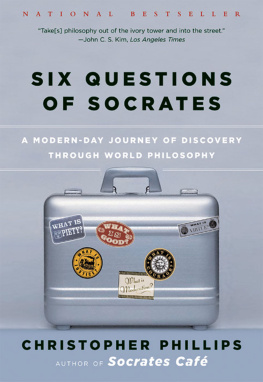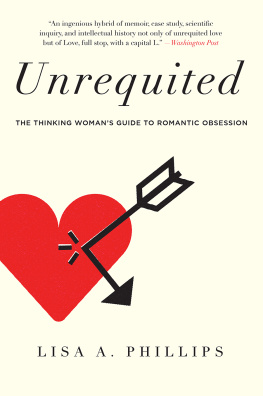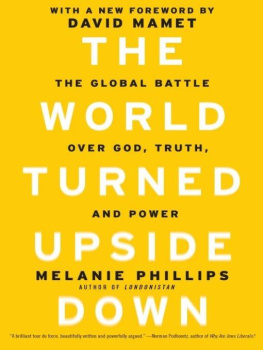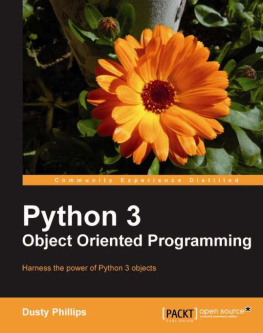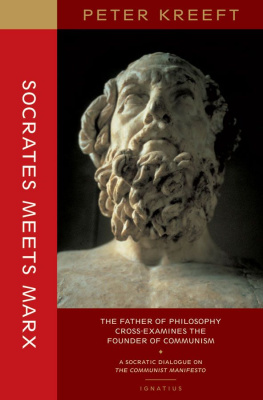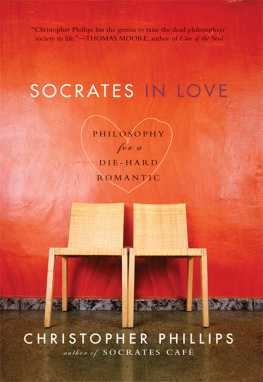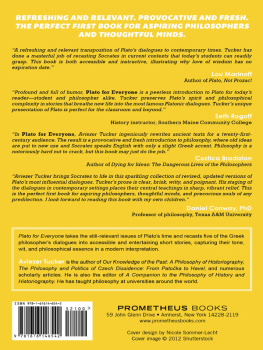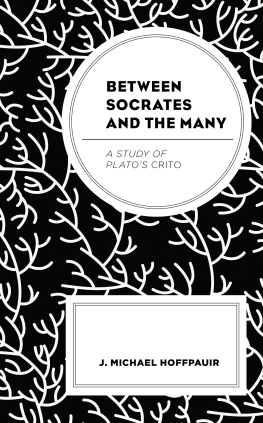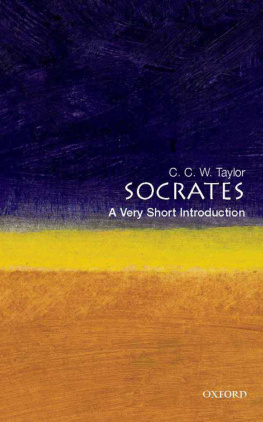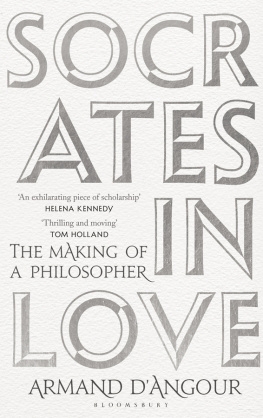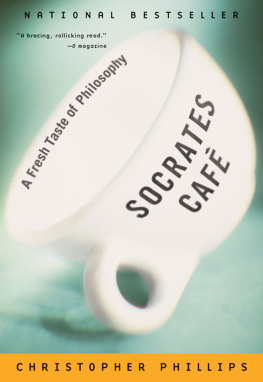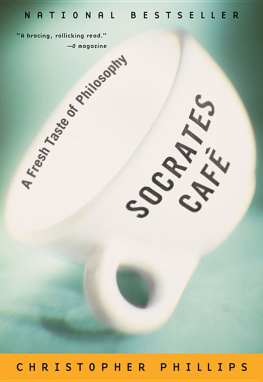More Praise for Six Questions of Socrates
Here is ancient wisdom in all its complexity brought vividly to liferendered accessible to readers today. Here is a traveling, inquiring teacher become a wonderfully engaging writer, whose reflecting mind becomes a companion for us needy readers, fortunate, indeed, to have his presence available through this books stirring pages.
Robert Coles, Harvard University
While Socrates conducted his encounters in the agora of Athens, Phillips is able to take advantage of modern travel, and hence his explorations are fascinatingly cross-cultural and embedded in the live issues of the participants. Then the author spices his reflections with material from world philosophy and literature, which makes the book a rich feast.
The Scientific and Medical Network
Phillips is well informed and cites from texts in a non-scholarly manner. These timely seminars provide many welcome insights into the controversial problems of our daily lives and induce further reflection about who we are and where we are going.
San Antonio Express News
[Phillips conversations provide] stunning illuminations of various cultural takes on these six fundamental qualities. Phillips presentation is skillful in his ability to weave threads of references to Socrates society and his own opinions into the fabric of each question. He is artful in his choices of which cultures best illustrate an original perspective on the question at hand.
Jeanette Leardi, Charlotte Observer
Phillips does an outstanding job of presenting diverse cultural points of view, especially those of people who live within the margins of their societies.
Steven Emmanuel, The Virginian-Pilot
Highly accessible. Alive with the passions of ordinary people from a dozen cultures, these colloquies dramatize the universality of Socrates deeply humanizing concerns. Readers will applaud Phillips for once again making philosophy a living enterprise beyond the lecture hall and the faculty lounge.
Booklist
Educated readers will want to discuss the ideas in this book, which is precisely the authors intent. Those new to philosophical thinking will find it an admirable introduction.
Library Journal
In this thoroughly engaging work, Phillips shows that philosophy is relevant and even vital to contemporary life.
The Age (Melbourne, Australia)
This book will make you think differently.
AZ Central
Phillips new book is a beautifully constructed sequel to the first volume. What [his] work suggests is that there are many ways for becoming a force for change. Oneis encouraging people to think and rethinkand American culture is richer for it.
Tom Robotham, Port Folio Weekly
SIX QUESTIONS OF SOCRATES
Also by Christopher Phillips
Socrates Caf
The Philosophers Club (childrens book)
SIX QUESTIONS OF SOCRATES
A Modern-Day Journey of Discovery through World Philosophy
CHRISTOPHER PHILLIPS
W. W. Norton & Company
New York London
Disclaimer: To guard participants privacy, all names have been changed; occupations and other biographical information, and the locales at which dialogues occurred, have at times been changed. Sometimes, participants portrayed in this book are composites of those who took part in actual dialogues, and some dialogues are composites.
Copyright 2004 by Christopher Phillips
All rights reserved
First published as a Norton 2005
Library of Congress Cataloging-in-Publication Data
Phillips, Christopher, 1959 July 15
Six questions of Socrates: a modern-day journey of discovery through world philosophy / Christopher Phillips.
p. cm.
Includes bibliographical references.
ISBN: 978-0-393-32679-6
1. Virtues. I. Title.
BJ1521.P45 2004
179'.9dc22
2003018200
W. W. Norton & Company, Inc.
500 Fifth Avenue, New York, N.Y. 10110
www.wwnorton.com
W. W. Norton & Company Ltd.
Castle House, 75/76 Wells Street, London W1T 3QT
For Cecilia,
luz de mi vida
CONTENTS

ARETE INTERRUPTED
I dont think that virtuewhat we call arete exists anymore.
No such thing as virtue? How can that be, in this of all places?
Im in the ancient agora of Athens, Greece, and I have just posed the question What is virtue? About twenty of us are huddled together in a tranquil spot amid the relentless bustle of this sprawling city of four million, which is readying to host the 2004 Summer Olympics. Agora typically is translated as marketplace, but I think a more appropriate translation is gathering place (in fact, the noun agora comes from the Greek verb ageiro , which means to gather). Those who converged centuries ago in this center of commercial and civic life didnt just come to barter and sell a wide range of merchandise, but also to exchange and examine ideas and ideals. The agora was situated in the heart of the Athenian polis , or city-state, the cradle of the first genuine democracy, which Pulitzer Prizewinning historian Daniel Boorstin said was responsible for the grand concepts that for the Western world would define morals, create communities, cement nations, and build empires. That so many lasting and noble achievements, says Boorstin, should have come from so fewits population was a mere eighty thousandis another miracle of classic Greece.
Most tourists milling about the area pay us no mind as we sit in the shade among the ruins of the stoa of the Greek god Zeus Eleutherios or Zeus the Delivererwhich was erected here to commemorate those whod fought to win freedom for the Greek city-states, and to honor Zeus, who Greeks at the time believed delivered them to freedom. Where were sitting, on pieces of marble that were once pillars of the stoa, is almost precisely where in the fifth century B.C . Socrates gathered with friends and acquaintances and antagonists to engage in philosophical dialogue.
All our eyes are now fixed on Maria, the woman who has just spoken. I dont seem to be the only one taken aback by this first response out of the starting gate. Before I can ask her why she believes theres no longer such a thing as virtue, or arete , another participant looks at her and says, Was there ever such a thing as virtue?
Oh yes, Maria says. Most definitely.
How so? I ask.
She does not respond right away. Maria, an artist, is a distant cousin of mine whom I met for the first time the previous day. She moved a decade ago to Athens from the volcanic island of Nissyros, part of the countrys Dodecanese Islands, from which my fathers parents immigrated to the United States in 1922. At a time when Greece, ruled by the constitutional monarchy of George II, was mired in miserable economic straits, made worse by an ongoing war with Turkey, my grandparents entered through Ellis Island, where their last name was summarily changed from Philipou to Phillips.
Look around you, Maria says now. What do you see? Magnificent ruins. You see the remains of a society that was steeped in virtue. Where were sitting now, where Socrates held court, is the most virtuous place of allan oasis of virtue.
She makes a sweeping gesture toward the breathtaking and largely intact Parthenon temple perched in the distance on the Acropolis Hill, which the Athenian ruler Pericles had ordered built as a monument to the cultural and political achievements over which hed presided. Maria says, The Parthenon, and all these ruins around us, are the product of virtue, of great minds and souls, free from illusions, soaring to heights never before or since attained. Her voice full of passion, she goes on: They make your spirit soar. They inspire you to imagine new possibilities of what it is to be a human.

